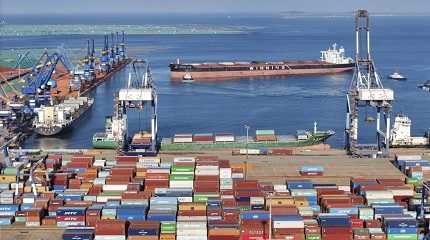
HONG KONG (AP) — China’s exports and imports both fell in August from a year earlier, reflecting tepid global demand that is adding to pressures on its slowing economy.
Customs data released Thursday showed exports for August slumped 8.8% to $284.87 billion in the fourth straight month of decline. Imports slid 7.3% to $216.51 billion.
The total trade surplus fell to $68.36 billion from $80.6 billion in July.
Chinese leaders have in rolled out various policy measures to shore up the economy after the country’s rebound from the COVID-19 pandemic fizzled earlier than expected.
The central bank has eased borrowing rules and and cut mortgage rates for first-time home buyers while providing some tax relief measures for small businesses.
So far, the authorities have avoided large-scale stimulus spending or broader tax cuts.
Demand for Chinese exports weakened after the Federal Reserve and central banks in Europe and Asia began raising interest rates last year to cool inflation that was at multi-decade highs.
Economists say much of the impact of those rate increases has yet to filter through major Western economies, where consumer spending has remained relatively strong.
“Looking ahead, we expect exports to decline over the coming months before bottoming out toward the end of the year,” Julian Evans-Pritchard of Capital Economics said in a report.
“Most measures of export orders point to a more substantial pullback in foreign demand than has so far been reflected in the customs data,” he said.
China’s trade has been gradually declining for the past two years, though August’s drops in export and imports were less severe than in July, when exports fell 14.5% from a year earlier while imports were 12.4% lower.
Politically sensitive exports to the U.S. fell 17.4% from a year earlier to $45 billion, the customs data showed, while imports of U.S. goods slid 4.9% to nearly $12 billion.
China’s imports from Russia, mostly oil and gas, increased 13.3% from a year earlier to $11.52 billion.
Chinese purchases of Russian energy have swelled, helping to offset revenue lost to Western sanctions imposed to punish the Kremlin for its invasion of Ukraine.
Exports to the European Union tumbled 10.5% from the same time last year to $41.3 billion, while imports of European goods declined 2.5% to $24.56 billion.




